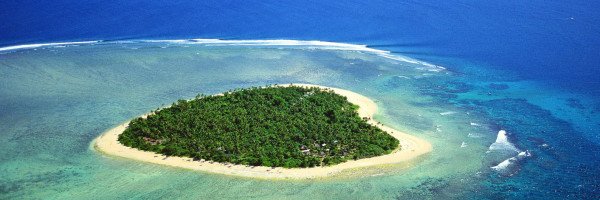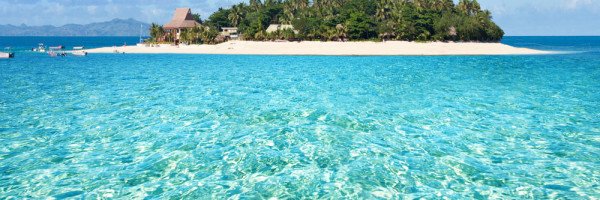Understanding Eco-Tourism in Fiji
Eco-tourism in Fiji is more than just a travel trend; it’s a sustainable approach that emphasizes responsible travel to natural areas, conserving the environment, and improving the well-being of local people. Visitors to Fiji are often drawn to its stunning landscapes, coral reefs, and rich biodiversity, but eco-tourism allows travelers to enjoy these natural wonders while also ensuring their preservation for future generations. By choosing eco-friendly accommodations and participating in conservation activities, tourists can help protect Fiji’s unique ecosystems and support local communities. For instance, many eco-lodges in Fiji prioritize sustainability by using renewable energy sources, minimizing waste, and sourcing food locally. This not only benefits the environment but also empowers local farmers and artisans. Travelers can actively participate in initiatives such as coral planting and beach clean-ups, which directly contribute to the health of Fiji’s marine and coastal ecosystems. New Zealand travelers can take inspiration from these initiatives, as both countries share a commitment to preserving their natural beauty through sustainable practices. To learn more about how to plan your eco-friendly trip to Fiji, visit Fiji Islands for resources on sustainable travel options.Preserving Cultural Heritage through Tourism
Fiji is home to a rich tapestry of cultural traditions and practices that have been passed down through generations. Eco-tourism not only supports the environment but also plays a crucial role in preserving these cultural heritages. By visiting local villages, travelers can engage with the Fijian way of life, including traditional ceremonies, crafts, and cuisine. This interaction fosters a deeper understanding of the Fijian culture and creates opportunities for cultural exchange. Tourists are often encouraged to participate in cultural experiences, such as learning the art of weaving mats or participating in a kava ceremony. These activities not only enhance the visitor experience but also provide income for local artisans and cultural practitioners. In New Zealand, similar activities such as Māori cultural experiences highlight the importance of cultural preservation through tourism. Travelers can support local communities by engaging with indigenous cultures and learning about their histories and traditions. For more insights on how your visit to Fiji can contribute to cultural preservation, explore Fiji Islands for cultural tourism opportunities.Supporting Local Economies through Eco-Tourism
Eco-tourism significantly boosts local economies by creating jobs and providing income to communities that rely on tourism as a source of livelihood. In Fiji, many eco-friendly resorts and tour operators prioritize hiring local staff, which not only provides employment but also ensures that the local culture and traditions are integrated into the visitor experience. This not only benefits the workers but also enriches the travel experience for visitors. By spending money on local goods and services, such as handicrafts, food, and guided tours, tourists help sustain the local economy. This is particularly relevant for visitors from New Zealand, who can appreciate the importance of supporting local businesses during their travels. Engaging with local markets and purchasing handmade products can make a significant difference in the livelihoods of Fijian artisans and vendors. To learn more about how your travel can support local economies in Fiji, check out Fiji Islands for suggestions on local experiences and businesses to support.Environmental Conservation Efforts in Fiji
The natural beauty of Fiji is one of its main attractions, but it is also vulnerable to threats such as climate change, overfishing, and pollution. Eco-tourism plays a vital role in promoting environmental conservation efforts in the region. Many eco-tourism initiatives are focused on protecting marine life, such as coral reefs and endangered species, through rehabilitation projects and sustainable practices. For example, visitors can participate in programs that monitor and restore coral reefs, which are essential to the health of marine ecosystems. By engaging in such activities, tourists contribute to the preservation of Fiji’s natural resources and habitats. New Zealand has similar programs, such as the restoration of native forests and marine reserves, which highlight the importance of local involvement in conservation efforts. For more information on how eco-tourism in Fiji supports environmental conservation, visit Fiji Islands for details on conservation programs and volunteer opportunities.Building Sustainable Relationships with Local Communities
Sustainable tourism fosters strong relationships between visitors and local communities in Fiji. When tourists engage respectfully with the local culture and environment, they create lasting bonds that benefit both parties. Eco-tourism encourages a two-way interaction, where travelers learn from locals and locals gain insights from visitors, fostering mutual respect and understanding. This relationship is crucial for the sustainability of tourism in Fiji. When visitors show genuine interest in local customs and traditions, it encourages communities to take pride in their heritage and continue preserving it for future generations. New Zealand’s community-based tourism initiatives serve as a great example, demonstrating how respectful engagement can lead to sustainable practices and cultural preservation. To explore how your visit can help build sustainable relationships in Fiji, check out Fiji Islands for community-based tourism experiences.Eco-Friendly Accommodations and Their Impact
Choosing eco-friendly accommodations is a key factor in promoting sustainable tourism in Fiji. Many resorts and lodges prioritize environmental stewardship by implementing green practices, such as water conservation, waste reduction, and the use of renewable energy sources. This not only minimizes their ecological footprint but also sets a standard for responsible tourism in the region. Travelers from New Zealand can seek out eco-lodges that offer sustainable amenities and practices, such as locally-sourced food and community engagement programs. Staying in eco-friendly accommodations allows tourists to contribute to the local economy while also supporting environmental conservation efforts. This alignment of values ensures that tourism benefits both the visitors and the communities they visit. For more information on eco-friendly accommodations in Fiji, visit Fiji Islands to discover various options available for conscious travelers.Future of Eco-Tourism and Cultural Conservation in Fiji
The future of eco-tourism and cultural conservation in Fiji looks promising as more travelers seek sustainable and responsible travel experiences. With increasing awareness of the importance of preserving both the environment and cultural heritage, eco-tourism is poised to grow as a vital part of Fiji’s tourism landscape. This growth presents opportunities for local communities to thrive economically while maintaining their cultural identity and environmental integrity. As eco-tourism evolves, it will be essential for both tourists and local stakeholders to collaborate in promoting sustainable practices. New Zealand’s approach to balancing tourism with cultural and environmental preservation can serve as a model for Fiji. By sharing knowledge and experiences, both nations can work together to create a more sustainable future for eco-tourism. To stay updated on the latest trends and initiatives in eco-tourism in Fiji, check out Fiji Islands for resources on responsible travel and cultural conservation efforts.FAQs
What is eco-tourism and how does it relate to Fiji?
Eco-tourism is responsible travel to natural areas that conserves the environment and improves the well-being of local communities. In Fiji, eco-tourism plays a crucial role in supporting sustainable practices, allowing visitors to enjoy the stunning landscapes and vibrant cultures while contributing to the preservation of the island’s unique heritage.
How does visiting Fiji support local communities?
When tourists visit Fiji, they contribute to the local economy by spending on accommodations, food, and activities. This financial influx helps create jobs and supports local businesses, allowing communities to thrive and invest in their own development while maintaining their cultural traditions.
What cultural conservation efforts are in place in Fiji?
Fiji has various initiatives aimed at preserving its rich cultural heritage, including traditional crafts, music, dance, and language. Many eco-tourism operators collaborate with local communities to offer authentic experiences that educate visitors about Fijian culture while ensuring that these traditions are passed down through generations.
Can eco-tourism in Fiji help protect the environment?
Yes, eco-tourism in Fiji promotes environmentally friendly practices such as sustainable farming, wildlife conservation, and habitat preservation. By prioritizing eco-friendly initiatives, both tourists and local communities can work together to protect the island’s natural resources and biodiversity.
What types of activities can travelers participate in to promote cultural conservation in Fiji?
Travelers can engage in various activities that support cultural conservation, such as participating in traditional ceremonies, learning local crafts, and joining guided tours led by local communities. These experiences not only enrich visitors’ understanding of Fijian culture but also provide vital income and resources for the communities involved.
Is it safe to travel to Fiji for eco-tourism?
Yes, Fiji is generally considered a safe destination for eco-tourism. The local communities are welcoming and eager to share their culture with visitors. However, as with any travel destination, it’s essential to stay informed about local customs and follow guidelines provided by eco-tourism operators to ensure a respectful and enjoyable experience.
How can travelers ensure their eco-tourism practices are sustainable while visiting Fiji?
Travelers can ensure their eco-tourism practices are sustainable by choosing certified eco-tourism operators, minimizing waste, respecting local customs, and engaging in activities that directly benefit local communities. Being mindful of their impact and making conscious choices can help preserve Fiji’s environment and cultural heritage for future generations.
References
- Fiji Islands Official Tourism Website – A comprehensive resource on Fiji’s tourism, showcasing eco-tourism initiatives and cultural experiences that benefit local communities.
- World Wildlife Fund – What is Ecotourism? – An overview of ecotourism principles, emphasizing its role in supporting local communities and preserving cultural heritage.
- UNESCO – Fiji Conservation Efforts – Highlights UNESCO’s initiatives in Fiji aimed at cultural preservation and sustainable tourism practices.
- National Institutes of Health – Ecotourism and Cultural Conservation – A scholarly article discussing the impacts of ecotourism on cultural conservation in Pacific Island nations, including Fiji.
- The International Ecotourism Society – A platform dedicated to promoting responsible travel to natural areas, highlighting case studies and resources that support eco-tourism in Fiji and beyond.







